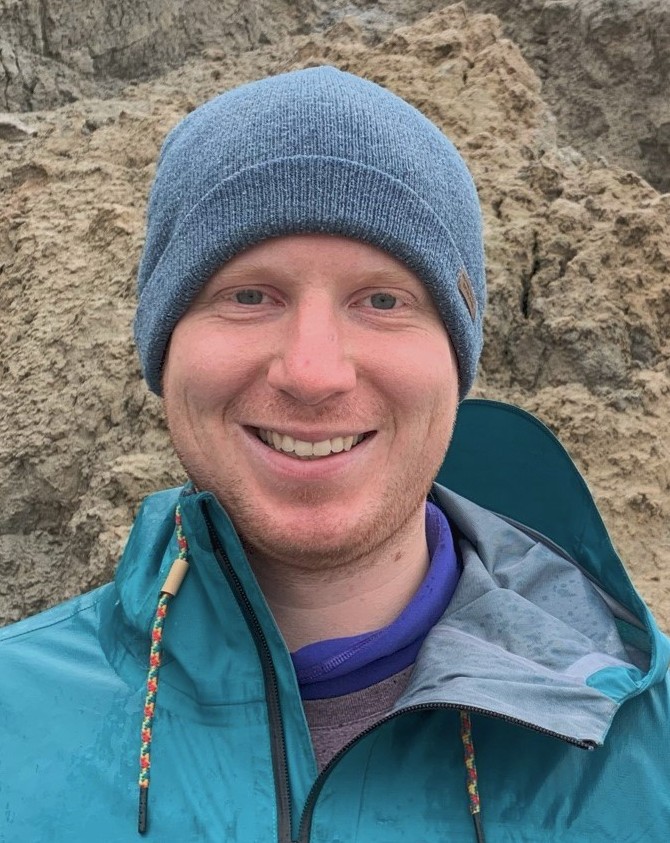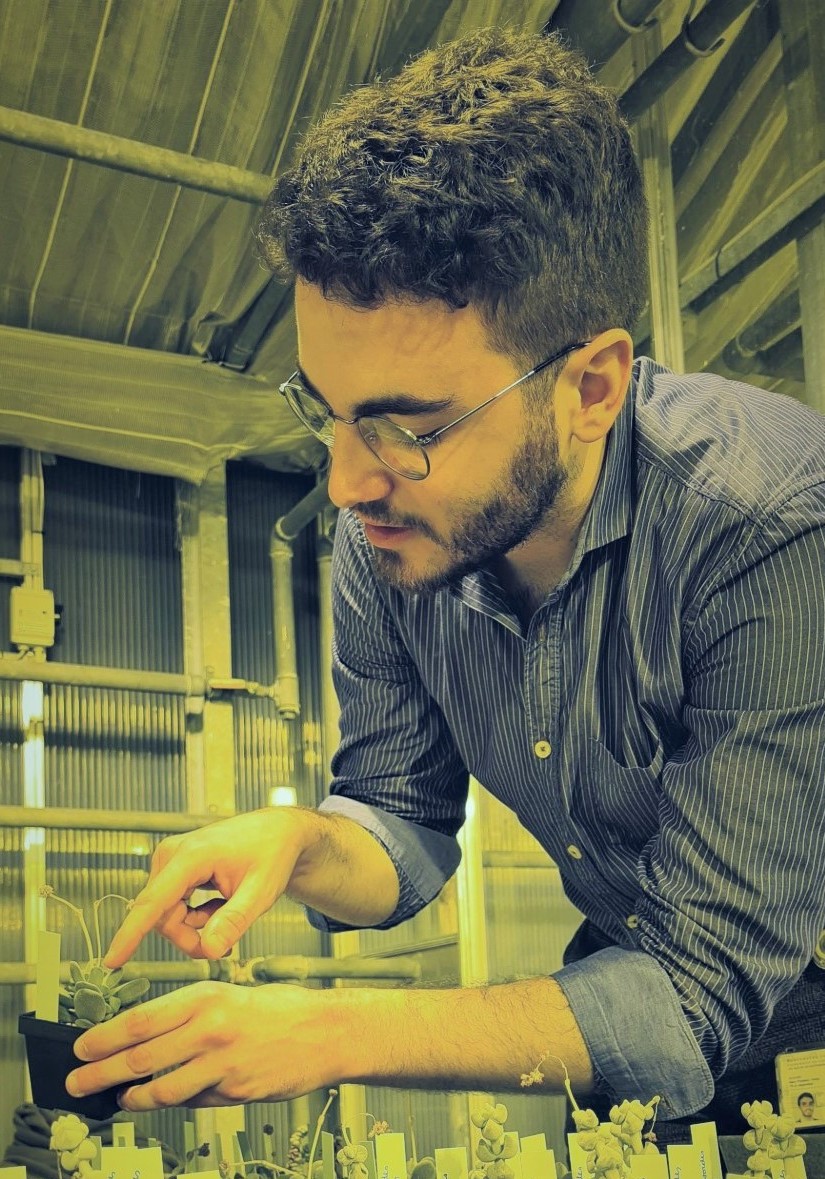Meet the fellows
Meet some of the fellows from The TALENT Doctotral Programme and get an insight in their research projects and how they think it will influence their PhD to be a part of the TALENT programme and their thoughts about how they think it will impact their future career to be a MSCA fellow.
Dinah Parker, Department of Plant and Environmental Sciences
Bikila Soboka Megersa, Department of Nutrition, Exercise and Sports
 PhD project: Modelling protein decay (ModProD)
PhD project: Modelling protein decay (ModProD)
Please explain your research to a non-scientific audience:
Analysis of ancient biomolecules employing genomics, proteomics, or metabolomics has helped in attaining insights into the events that occurred in the past. Particularly the study of ancient proteins, termed as palaeoproteomics, has received significant attention due to improvements in method development and high-throughput techniques. For example, palaeoproteomics has resolved the evolutionary history of Darwin’s South American ungulates. One of the main attributes of the proteins derived from ancient samples is the extent of its decay. Essentially, what this means is that more the decay, smaller is the chance to retrieve information from the sample as it is then harder to reconstruct the protein sequence. Thus, understanding the mechanisms through which proteins decay is of necessity to aid in reconstructing ancient proteomic sequences and to predict the environmental conditions prevalent in those times. What I aim to do with my project is to simulate an experiment that mimics the similar situations the proteins preserved in fossils undergo i.e. to degrade the protein at high temperatures for longer time periods and track down the decay products at several time points to understand in fine detail the mechanism of protein decay.
How do you think that it will influence your PhD to be part of the TALENT programme compared to being part of more ‘individualized’ PhD programmes established at department level?
Due to the interdisciplinary nature of the doctoral programme I am encouraged and motivated to get out of my comfort zone to gain new skills and perspectives. For example, I was trained in chemistry but now learning about proteomics, statistics, and dairy products and consumption. Additionally, the level of innovation is very high in this programme. I also believe that mentorship that stresses the importance of developing skills during the course of PhD is motivating. Furthermore, cohorts of exceptionally talented students working on a range of disciplines is a great platform for developing and implementing revolutionary ideas. Lastly, the programme will provide me with a platform to teach B.Sc. and M.Sc. students.
How do you think that it will impact your future career to be a MSCA fellow?
I think it will help me develop as an independent researcher. In my perspective, the most important part of a PhD is to evolve myself as an independent researcher with the right knowledge and skill set. In addition, it will align my research towards combatting world issues.
 PhD project: Generating Fact Checking Explanations
PhD project: Generating Fact Checking Explanations
Please explain your research to a non-scientific audience:
The topic of my Ph.D. programme lies at the intersection of explainable machine learning and computational fact checking. Explanations are an important complement to the predictions of a machine learning model. They are especially needed when considering the adoption of a model by a broad user group. They unveil a model’s decisions that have led to a particular prediction, which increases users’ trust in the automated system and can also be leveraged to find its potential vulnerabilities and errors. “The right … to obtain an explanation of the decision reached” is also instructed by a regulation in the European law. Nonetheless, the current research landscape in automated fact checking is comprised of systems that estimate the veracity of claims based on metadata, the language, and evidence supporting or denying claims. A crucial piece of the puzzle that is still missing is to understand how to automatically generate explanations for verdicts on claims. Generating layperson fact checking explanations, that also faithfully uncover the inner reasoning of a model, will allow us to automate the most time-consuming part of the fact checking process and to build trust in a model’s veracity predictions.
How do you think that it will influence your PhD to be part of the TALENT programme compared to being part of more ‘individualized’ PhD programmes established at department level?
The TALENT Ph.D. programme provides a rare and outstanding opportunity for prospective Ph.D. students to be independent and proactive in defining the course of their research studies already prior to starting their programme. As part of my application, I was allowed to both provide a project proposal for a research topic of my interest and to specify the person I wanted as my supervisor. During the Ph.D. programme, there are also a number of career development opportunities, which I’m able again to adjust to my research interests.
How do you think that it will impact your future career to be a MSCA fellow?
The MSCA fellow's programme is centered around the Career Development plan, which each student has to construct according to their research interests. Apart from the research activities, in my Career Development plan, I also planned a research visit abroad, teaching activities, and a number of courses to enhance specific skills. The whole range of development opportunities fosters essential life-long skills and equips for future careers in academia or industry.
 PhD project: Novel molecular players in metabolic adaptations to exercise
PhD project: Novel molecular players in metabolic adaptations to exercise
Please explain your research to a non-scientific audience:
Aging is an inevitable process occurring from birth to death and sarcopenia, the gradual loss of muscle mass and function, is a natural part of it. The most effective way to prevent sarcopenia is by keeping the muscles active through exercise – if you don´t use it, you lose it! However, conventional guidelines for exercise fail for many people for various reasons and additionally, there are many people who have injuries or illnesses which render them unable to move. Thus, a therapeutic approach could help them to reap the benefits of exercise as well. Yet, there is a considerable knowledge gap regarding the molecular signals by which exercise can prevent sarcopenia and promote healthy aging. Thus, this project aims to identify the molecules and intracellular mechanisms that transduce the benefits of exercise. A better understanding of the underlying mechanisms would accelerate the development of better treatment and, hopefully, improve the quality of life for the elderly.
How do you think that it will influence your PhD to be part of the TALENT programme compared to being part of more ‘individualized’ PhD programmes established at department level?
Being a part of the TALENT programme will greatly benefit me in pursuing a future international research career in both academic and non-academic sectors. It submerges me into an active research environment, in which each member can be inspired by another and in which I can explore my own ideas. The programme, not being established at the department level, provides me with the opportunity to be more independent. Furthermore, I have been able to take an active and leading part in the original design of my project providing me with important organizational, planning, and writing skills. Attending workshops exclusive to. The programme also provides the opportunity to widen my section´s network by interacting and initiating new research collaborations with several universities from all over the world.
The requirement of following secondment outside of Denmark provides the great opportunity to exchange knowledge and learn more on the topic from the project partners. Moreover, other life skills will be nurtured through this international mobility, such as critical thinking, problem solving, communication and interpersonal skills.
How do you think that it will impact your future career to be a MSCA fellow?
Being a MSCA fellow provides the opportunity to increase my own but also the department´s research output by enabling us to efficiently achieve set academic goals. For example, my work has already resulted in the development of a new major project. Additionally, I have acquired unique methodological knowledge that will greatly benefit my future career opportunities. I also expect to base my future application to pursue a research career on results obtained during the project, which will help me develop further as an independent scientist. Moreover, being a MSCA fellow undeniably enriches my career trajectory by promoting, recognizing, and support my research now during my PhD level study and beyond.
 PhD project: Characterization of spoilage yeasts and the mechanisms of interactions with starter cultures in fermented dairy products
PhD project: Characterization of spoilage yeasts and the mechanisms of interactions with starter cultures in fermented dairy products
Please explain your research to a non-scientific audience:
The aim of this study is to characterize yeasts species isolated from dairy products, investigate the factors related to spoilage and provide tools for controlling yeast spoilage in dairy. Yeasts can be responsible for spoilage of different dairy products causing considerable quality and safety loss and shelf - life reduction. Their spoilage potential vary among dairy products and production sites taking into consideration their ability to grow in the dairy product, form off-flavors and cause discoloration; the major quality defects. Yeast occurrence is highly affected by the intrinsic conditions in food matrices, and environmental factors, especially by temperature fluctuations along the storage and distribution chains. Consequently, food shelf-life should be viewed in a holistic perspective taking into consideration all significant aspects affecting product quality. Therefore, models predicting growth of yeast spoilers will be developed, linking the spoilage potential of each specific yeast species with the shelf-life of the fermented dairy product. The outcome of the project will provide new tools and solutions to control yeast spoilage, extend shelf-life of the dairy products, provide improved quality and safe products to the consumers and reduce product waste.
How do you think that it will influence your PhD to be part of the TALENT programme compared to being part of more ‘individualized’ PhD programmes established at department level?
In my opinion, being a member of the TALENT programme is of great importance for every potential PhD student. The crucial issue is that every PhD student has a specific submitted project with designated working packages and tasks according to a Gantt chart. Having a scheduled working plan leads to a successful coherence and effectiveness of the project, supports and encourages the students work in a more targeted way.
How do you think that it will impact your future career to be a MSCA fellow?
It is an honor and a great chance to be a MSCA fellow. Certainly, each fellow will acquire new skills and competences in their project, but being a MSCA fellow may have an impact in our future career by providing professional development, a wider spectrum of job opportunities and recognition within the scientific field of each fellow.
 PhD project: Coastal Cliff Erosion in Denmark and Greenland
PhD project: Coastal Cliff Erosion in Denmark and Greenland
Please explain your research to a non-scientific audience:
Large parts of the Danish and Greenlandic population live close to the coast. During the last glacial period, around 20,000 years ago, glaciers covered large parts of Denmark. Those glaciers shaped the landscape as we know it today. Very fine sediments produced by the glaciers cover the underlying bedrock. Along the coastal cliffs of Denmark, those sediments are exposed to the elements, like waves and heavy rainfall, leading to erosion. In Greenland, on the other hand, the glaciers are still covering large parts of the land. The landscapes that are released by the glaciers nowadays are much younger and often still frozen. Climate change is predicted to have a high impact on the factors still stabilizing the coasts. I am locating the cliffs prone to high rates of erosion in Denmark and Greenland as well as investigating the factors causing coastal cliff erosion. This research has a high socio-economic impact, as coastal cliff erosion is a potential geo-hazard.
How do you think that it will influence your PhD to be part of the TALENT programme compared to being part of more ‘individualized’ PhD programmes established at department level?
So far, I do not see much of a difference between the TALENT Program and more ‘individualized’ PhD programs at the department level. Currently there is no lively TALENT PhD fellow community, which might also be due to COVID-19. The 74 PhD TALENT PhD’s are spread across several departments, sections, buildings and most of all different research areas. It would be nice if future meetings among the PhD students would be organized at least on a department level.
How do you think that it will impact your future career to be a MSCA fellow?
I see high potential in being a part of the prestigious MSCA fellowship program. The MSCA alumni association offers grants for fellows on its own, and the MSCA are highly regarded in the international science community.
 PhD project: Characterization and evolution of succulence-related anatomical and physiological traits in the leaf-succulent genus Crassula
PhD project: Characterization and evolution of succulence-related anatomical and physiological traits in the leaf-succulent genus Crassula
Please explain your research to a non-scientific audience:
My project focuses on the genus Crassula, a group of succulent plants with most species occurring in southern Africa. Succulent plants are able to store water in their organs, allowing them to become rather independent of external water conditions. Thus, succulents belonging to different plant groups have diversified enormously in several arid and semi-arid regions of the planet. Although succulents are a very charismatic type of plants, with long-established horticultural value due to their sculptural shapes, knowledge gaps remain regarding how these plants have evolved and adapted to the extreme habitats where they occur. Furthermore, features of succulent plants will likely allow them to withstand increasing levels of aridity related to climate change. Therefore, their potential applications under future conditions are numerous, such as crop improvement, food security, source of medicinal products and bioenergy. Species of Crassula occur in contrasting conditions in southern Africa, from sub-humid forests to hyperarid deserts, and they exhibit remarkable diversity in appearance, with plants ranging from tiny rosettes to large shrubs. Although all members of the genus are succulent, they are also believed to perform different modes of photosynthesis. Thus, Crassula represents a suitable study case for succulent evolution and might allow us to identify and understand the features that, through evolution, have allowed diversification in arid environments.
How do you think that it will influence your PhD to be part of the TALENT programme compared to being part of more ‘individualized’ PhD programmes established at department level?
For me, one of the main advantages of a PhD programme such as TALENT is the possibility of designing your own research project and focusing on a topic that you are passionate about. Doing a PhD can be rather demanding and frustrating at times, so I value the fact that my interest in the topic balances out the handicaps I am encountering in the process. At the same time, that same interest makes the achievements even more rewarding. Ultimately, I believe that this high motivation surely leads to high-quality research outputs from a PhD project.
How do you think that it will impact your future career to be a MSCA fellow?
Being a MSCA fellow is allowing me to work at a world-renowned university like the University of Copenhagen and to focus on a research topic that I am highly interested in. Both TALENT and MSCA foster interdisciplinary collaborations with other institutions and/or companies, and the collaborations I am currently establishing during my PhD project, most of which involve institutions and researchers from other countries, will certainly influence my future career path in science. Finally, I believe that being part of the MSCA will allow me to pursue a career in research and to access positions in other world-leading research institutions.
